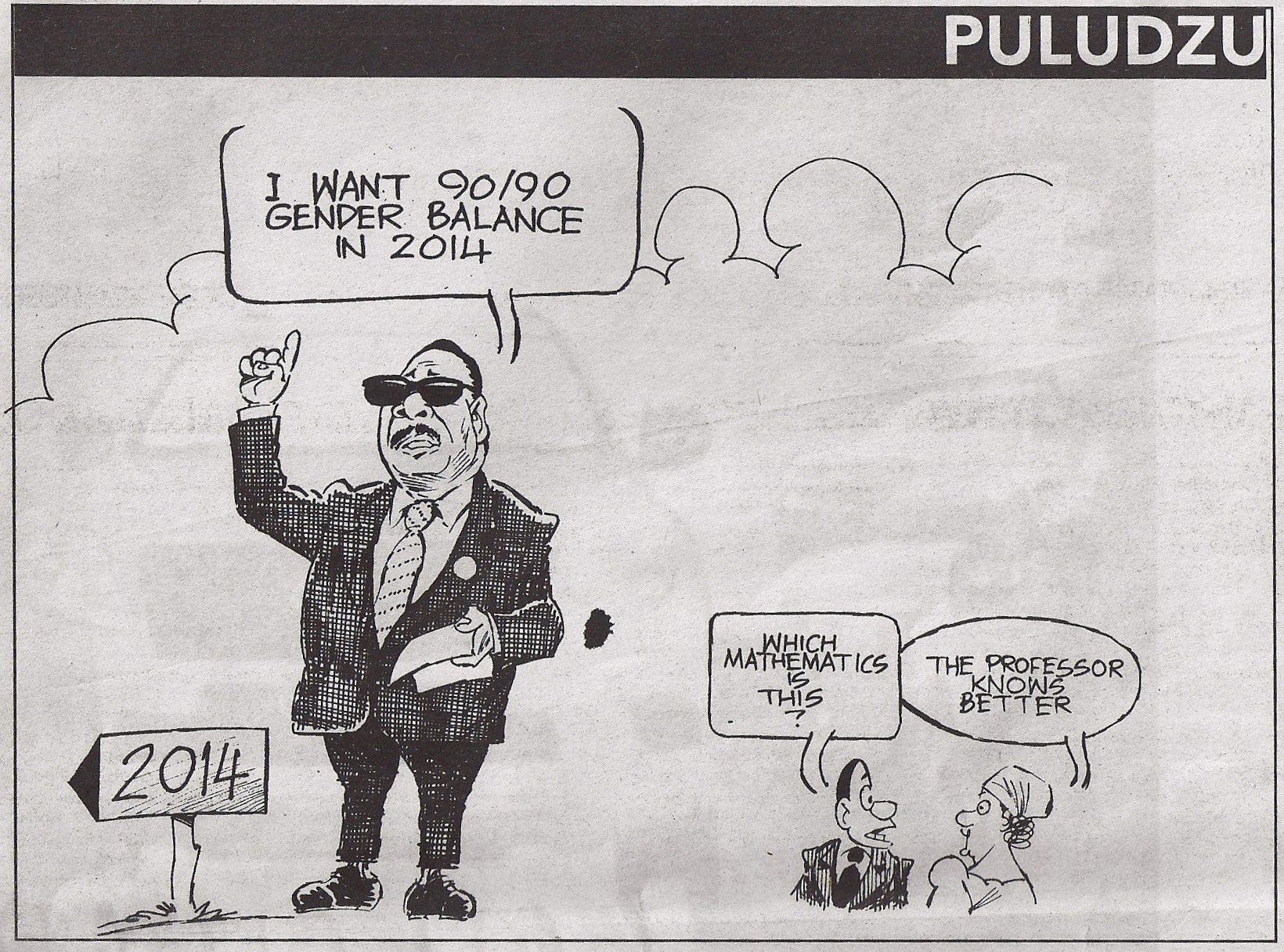Cars in Malawi are mostly beaters bought directly from Japan, or trashed vehicles too far gone for other Sub-Saharan countries. Most of these vehicles would be wholly illegal in the United States, but drivers in Malawi don’t have much choice. On the way back from Lilongwe last night, we blew a fan belt and had to turn around to try and find another. Parking at a local market center, about 20 guys run out offering assistance. 10 minutes later, the driver come back from the market with a handful of random belts. A guy armed with nothing more than a 6 inch 14mm wrench and a tree branch (I’m not kidding) proceed to try and put the belts on one by one, until a fit can be found. No books, computers or looking at the numbers, just vehicle repair by brute force.
His “supervisor” comes out from the hardware store to survey the situation. The “boss” is a 16 year old kid in a homemade, bright red tie and a homemade half-sleeve button down shirt. To complete the uniform, he had some soleless, white leather shoes and proceeded to do not much more than stand over the mechanic, alternating “supervising” with glaring at the white guy. “What, what…”, he kept repeating. I thought he wanted to fight, but I finally figured out that that was the extent of his English. This guy is going to go places. I’m convinced that in Malawi, education is the first key to social mobility. The second key is a button down shirt, tie and leather shoes.
While being eaten alive by potentially malaria carrying, bloodthirsty mosquitoes, no less than 30 people came attempting to sell goods. In Africa, people will try to sell anything, even items you wouldn’t think could ever be sold. Food, baskets, pens, dog collars, pieces of broken electronics, single shoes, anything that can be sold, will. There’s a guy in Blantyre that walks around in fake animal skins trying to sell pieces of iron that he wears like clothing. If this country had the incredible capital wealth that the United States had, it could be the richest area on the planet. In contrast to Blantyre, however, these country areas are largely free from beggar kids. Most people just hope to make a quick sale, and there’s little problems with the incredible price gouging that goes on in the urban areas.
Every market center in Malawi is mostly the same. A string of bars serve the local male youth and tired truck drivers. All manner of food, from the most amazing organic produce that you’ve ever seen, to baked goods, to fried and grilled meats that will make you cry, to not yet killed chickens, goats and cattle are for sale. Electronic repairs shops and video theaters dot the landscape. Agricultural supply stores, car parts, household wares, convenience stores serve the population in largely that same manner that those anywhere else do. After driving until nearly 2 in the morning, you can tell that these places are active nearly 24 hours a day, drunken men and prostitutes walking around at all hours. It’s a thrilling capitalistic exercise, free of official control, but also suffering from a lack of government provided infrastructure such as electricity and plumbing. Whereever a Kwacha can be made, a Malawian is there to make it.
Standing on the side of the road for more than two hours, the sun sank into the east. I watched a series of minibuses, Africa’s capitalistic version of public transportation, pass by, packing incredible numbers of people in a TARDIS like, “it’s bigger on the inside than the outside”, fashion. Nearly 20 guys stood on the side of the road, hitchhiking, and getting harassed by a drunken police officer, doing his version of public safety management. As night fell, storms roll in from the South, creating a panorama like scene of life giving rain blanketing some of the most fertile land on the planet. The humidity and fertility of this land pervade every facet of life here, causing one to wonder how on earth, in a place with three growing seasons and a seeming abundance of food, anyone could ever die of starvation. Yet people do.
A goat is worth more at the market than at home, especially when one has to balance the $50 that one can make over a single mean for the 20 plus people at home who depend on the goat-seller to pay for clothing, school fees, salt, sugar and fertilizer. Subsistence farming is horribly inefficient, and a combination of a misguided World Bank demanding abolition of government farming subsidies (batshit free-marketing Americans) and vast fuel and transportation shortages (more bat-shit free-marketing American meddling) keep consolidation and streamlining of food production from happening. The result is that food is expensive both in time, money and physical labor. If Malawi had the means, I am sure that this tiny country could feed all of Sub-Saharan Africa and potentially the entire European continent. It’s literally that rich. You can drop a bag of seeds anywhere in this country, and a month later, you will have a culinary bounty worthy of hundreds of dollars in Whole Foods Organic Produce. I’ve truly never seen anything like it.
By
Pete Larson

.jpeg&w=60&q=100&h=60)




.jpeg&w=60&q=100&h=60)




